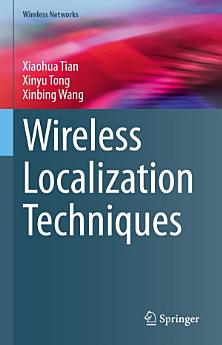Wireless Localization Techniques
About this ebook
About the author
Xinyu Tong received the B.E. and Ph.D. degrees from the Department of Electronic Information and Electrical Engineering, Shanghai Jiao Tong University, Shanghai, China, in 2015 and 2020, respectively. He holds a post-doctoral position at the College of Intelligence and Computing, Tianjin University. His research interests include wireless sensor network and wireless localization.
Xinbing Wang (Senior Member, IEEE) received the B.S. degree (Hons.) from the Department of Automation, Shanghai Jiaotong University, Shanghai, China, in 1998, the M.S. degree from the Department of Computer Science and Technology, Tsinghua University, Beijing, China, in 2001, and the Ph.D. degree from the Department of Electrical and Computer Engineering, and the Department of Mathematics, North Carolina State University, Raleigh, in 2006. He is currently a Professor with the Department of Electronic Engineering, Shanghai Jiaotong University, Shanghai, China. He has been an Associate Editor for IEEE/ ACM Transactions on Networking and IEEE Transactions on Mobile Computing, and the member of the Technical Program Committees of several conferences including ACM MobiCom 2012, 2018–2021, ACM Sigmetrics 2021, ACM MobiHoc 2012–2019, and IEEE INFOCOM 2009–2020.





